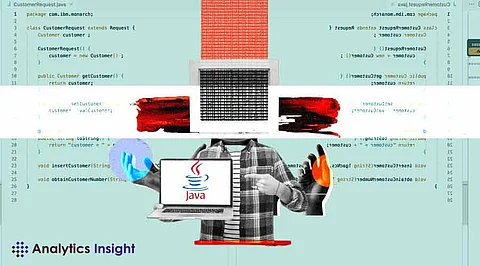

Oracle has recently launched its newer version of the Java development platform, Java 23. With thousands of enhancements, Oracle's Java Development Kit 23 (Oracle JDK 23) helps developers boost productivity while improving the platform's security, reliability, and performance. This article delves into the details of Java 23, along with its key features, new language features, and more.
Several language enhancements, library updates, and tools to expedite Java development are included in the latest edition.
Important Points:
a. Twelve JEPs (JDK Enhancement Proposals) were submitted.
b. Fresh features from Project Amber in language.
c. Enhancements to the library, such as upgrades to concurrency tools and APIs.
d. Performance improvements, especially concerning waste collection.
e. Markdown support for comments in the documentation is introduced.
Additionally, Java Management Service (JMS) 9.0, a native Oracle Cloud Infrastructure (OCI) service, offers a unified console and dashboard. It also assists enterprises in managing Java runtimes and applications on-premises or in any cloud.
Furthermore, Oracle JDK 23 offers additional choices to optimize and enhance peak performance. Additionally, Graal compiler, a dynamic just-in-time (JIT) compiler written in Java, converts bytecode into optimized machine code. JMS 9.0 also offers numerous usability improvements.
Oracle's main Java project areas are the source of many of the new features:
a. Loom: Concentrates on concurrency, encompassing structured and virtual threads.
b. Panama: Seek to enhance memory access and native code function calls.
c. Amber: Focuses on modifying the language to make Java more data-driven and concise.
d. Valhalla: Improves warm-up and starting times.
e. Babylon: It is a new project that introduces code reflection and focuses on GPU programming initially.
Oracle documentation lists the following as new language features made possible by Project Amber:
a. JEP 455: Makes Java programming more productive by improving the language's consistency and expressiveness. It improves pattern matching by allowing primitive type patterns in all pattern contexts and extends instances and switches to work with all primitive types by helping to remove limitations related to primitive types that developers encounter when using pattern matching and switch.
b. JEP 476: Allows developers to increase productivity by importing all of the packages that a module exports fast and simply, without requiring the importing code within the module itself. This makes it easier for developers to reuse modular libraries and makes it easier for novices to use basic Java classes and third-party libraries without having to figure out where they are in a package hierarchy.
According to Arnal Dayaratna, Research Vice President for software development at IDC, the new release enables developers to expand their toolset and increase their productivity. It will help them to build and deliver applications that utilize powerful applications such as Artificial Intelligence (AI).
a. Virtual threads enable better resource economy and scalability, which lowers costs and enhances the creation of high-performance applications.
b. Code that is faster, easier to maintain, and matches patterns to switch functionality more quickly while lowering long-term technical debt.
c. Improved performance for data-intensive applications without the need for code rewrites thanks to seamless connection with native libraries through the Foreign Function and Memory API.
Oracle recently revealed at Oracle CloudWorld that Oracle Code Assist will initially be optimized for Java to support Java developers with GenAI. The OCI-based Oracle Code Assist service will also support C, C++, Go, JavaScript, PL/SQL, Python, Ruby, and Rust. Oracle Code Assist is an AI code companion that facilitates the development of Java applications.
Lastly, Oracle said that JavaOne, the premier gathering for the worldwide Java community, will be held in Redwood Shores, California, on March 18–20, 2025.
Oracle's introduction of Java 23, combines substantial feature additions with enhanced performance, security, and usability. Therefore, it represents a major step forward in the Java development landscape.
With the launch of twelve JEPs and developments from key projects like Loom, Panama, Amber, Valhalla, and the new Babylon, Oracle is demonstrating its dedication to advancing Java with innovative features and tools. Together with changes to concurrency tools and performance optimization, Java 23's improved language features such as better pattern matching and module imports. It is an invaluable tool for developers creating reliable, high-performing applications. Furthermore, the integration of Oracle Code Assist and Oracle Management Service 9.0 highlights Oracle's strategic focus on providing developers with cutting-edge AI tools and efficient management solutions.
